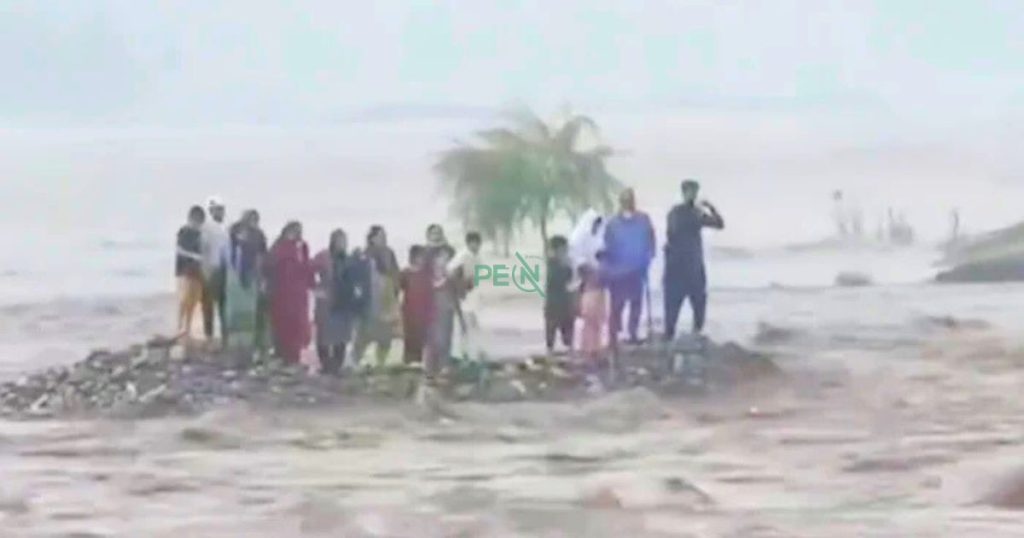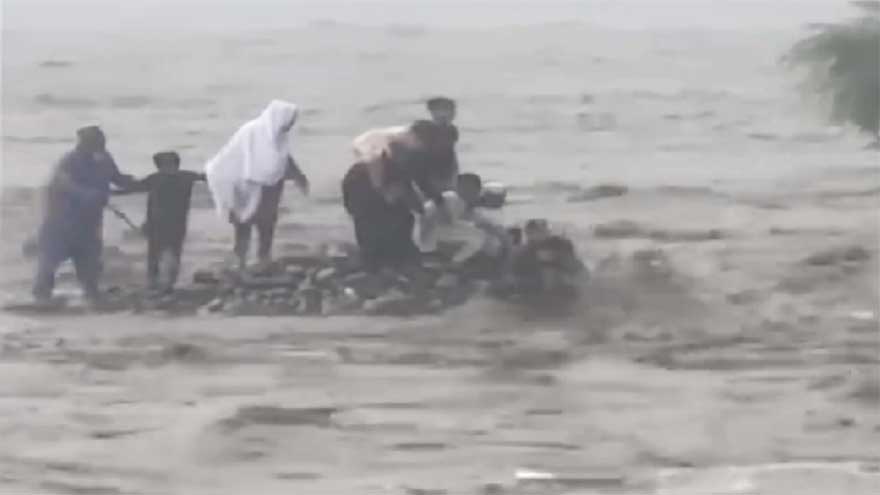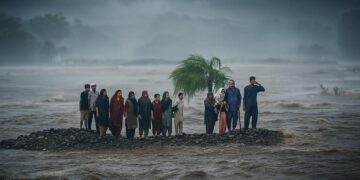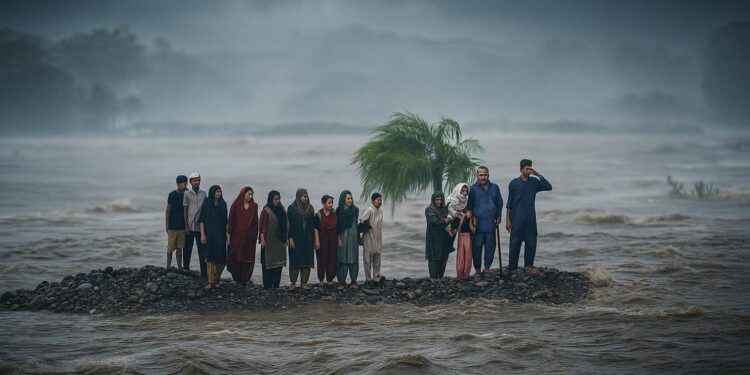A devastating tragedy on the Swat River claims 15 lives, leaving a nation in mourning. “Swept Away and Forgotten” uncovers the human stories behind the headlines and the urgent questions left unanswered.

In a heartbreaking incident that has left the nation stunned and mourning, fifteen members of a single family from Sialkot, Punjab were swept away by floodwaters in the Swat River near Mingora. The tragedy unfolded in slow, agonizing real time—witnesses say the victims screamed, cried, and pleaded for help for hours. But no one came. Not the government. Not the army. Not the police.
This wasn’t a sudden accident. It was a death sentence delivered by neglect.
A Family’s Final Moments
The family had reportedly been on a trip to the scenic Swat Valley, seeking solace in the hills as thousands of Pakistanis often do during the summer.
But their trip turned into a nightmare when unexpected flash floods surged through the area. Caught in the strong currents, the family—men, women, and children—clung to rocks and each other for hours.

Eyewitnesses recounted the helplessness of the scene. Locals tried to shout encouragement from a distance but were unable to mount a rescue operation themselves. There was no presence of rescue teams, no emergency services, and no state machinery mobilized in time.
“The children were crying for their mothers, the women were screaming for help, and the men were shouting for ropes, boats—anything,” said one eyewitness. “We watched them disappear, one by one.”
The Deafening Silence of the State
What makes this tragedy even more unbearable is not just the loss of life—but the complete absence of a timely response from the state. Pakistan’s government, military, and emergency institutions pride themselves on their reach and discipline. Yet in this moment of need, they were nowhere to be seen.
Mingora is not a remote or cut-off village. It’s a bustling city in the Swat District, with considerable tourism and regular military presence due to its history of militancy. If a full family can vanish in broad daylight in such a location without the arrival of a single official rescue unit, what hope is there for smaller, more remote communities?
The silence in the wake of the disaster—from leaders, politicians, and media outlets—is equally damning. No immediate statements. No national mourning. Just a vacuum where empathy and accountability should be.
More Than a Tragedy—A Reflection
This is more than a weather disaster. It’s a brutal reflection of the chronic neglect that vulnerable communities in Pakistan face every year. From Karachi’s urban flooding to the landslides in northern Khyber Pakhtunkhwa and Gilgit-Baltistan, our infrastructure is consistently unprepared, our emergency responses are patchy at best, and the victims are often blamed for being in the “wrong place.”
The real question is: where is the right place to be in Pakistan when disaster strikes?
The floods come every year. The warnings, too. And yet, we repeat the same cycle: denial, disaster, death—and then forgetfulness.
A National Wake-Up Call
The story of this family must not be allowed to disappear in the floodwaters. It must become a rallying cry. We need to stop treating tragedies as one-off events and start recognizing them as symptoms of systemic failure.
There must be an immediate and thorough investigation into why no rescue efforts reached the family in time. Was it a failure of communication? Equipment? Personnel? Or simply a lack of will?
But more importantly, Pakistan needs to radically rethink its emergency preparedness. In a country so vulnerable to climate change, it is not optional—it is urgent.
We must establish:
- Community-based rapid response units trained in disaster management.
- Localized early warning systems in every flood-prone area.
- Cross-provincial coordination to handle tourist safety, especially in northern regions.
- Accountability structures so that officials who fail in their duties are held responsible.
We also need to invest in public education. People must know where to go, whom to call, and what to do when floods or landslides occur. Right now, most Pakistanis are left to fend for themselves in crisis, relying only on prayers and luck.
Let this not be just another flood. Let this not be just another forgotten family.
Unity Isn’t Optional—It’s Survival
In moments like these, we are reminded that unity is not just a feel-good slogan. It’s survival. When one part of the country suffers, we must all feel the pain. When one family is left abandoned, every citizen should demand justice. When the system fails, we must rise not just to grieve—but to change it.
The people of Sialkot have lost 15 of their own. The people of Swat are haunted by what they witnessed. And all of Pakistan should be shaken by what this means about the state of our institutions and our compassion.
Table of Contents
RERAD ALSO….RIP Shefali Jariwala: The Kaanta Laga Star Who Lit Up the 2000s















 Categories
Categories









